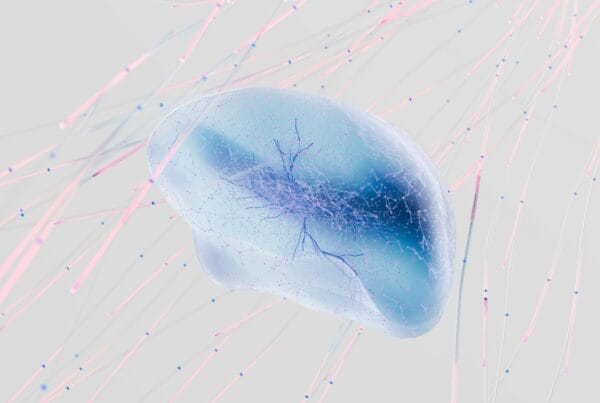As Earth Overshoot Day arrives earlier each year, the urgency for a shift towards a regenerative economy grows. It is a time when we must collectively explore innovative solutions and investment strategies that align with sustainability and positive societal impact. One such approach gaining momentum is impact investing in venture capital, which presents a potent tool to channel resources towards enterprises that prioritize productivity, societal benefits, and environmental sustainability.
A Forum on Impact Investing and Regenerative Economy
Recently, at the engaging dialogue forum hosted by Groundlake Partners and Graf Bjoern Bernadotte on the Mainau Island in Lake Constance, the topics of impact investing and collaborative efforts took centre stage. The picturesque backdrop of Mainau Island served as a fitting setting to foster discussions on how we can drive significant change and demonstrate that money is not the ultimate driver but rather the energy to catalyze transformative actions.
The forum emphasized the importance of harnessing our unique collaboration ability, bringing together diverse perspectives, expertise, and resources. By fostering partnerships among investors, entrepreneurs, and change-makers, we can unlock the full potential of impact investing in venture capital. This approach allows us to direct financial support towards enterprises that generate returns and create positive social and environmental outcomes.
Mainau Island serves as an inspiring example of collaboration and commitment to sustainability. The island’s rich biodiversity, beautiful gardens, and dedication to environmental stewardship demonstrate that a regenerative economy is necessary and achievable. The forum participants recognized the importance of replicating the spirit of Mainau Island’s sustainability efforts in their respective ventures and investment strategies.
Insights into the Environmental Impact of Breast Implants
In plastic surgery, breast implants have significantly empowered individuals to enhance their self-confidence and well-being. However, it is equally important to address the sustainability aspects of the breast implant supply chain. Arbrea Labs is actively committed to minimizing the environmental impact of breast implant procedures through better planning and optimized supply chain practices while contributing to the broader goal of a regenerative economy.
Recent investigations into the sustainability practices of leading breast implant manufacturers shed light on the environmental consequences of their operations. The analysis, including greenhouse emissions, water withdrawal, solid waste, and energy utilization, revealed substantial differences between two leading breast implant manufacturers (A and M).
- Greenhouse Emissions: Company A reported 4.25 metric tons of carbon dioxide equivalent (MTCO2e) per $1M in revenue, while Company M reported 9.0 MTCO2e per $1M. While Company M has a higher greenhouse emissions rate, they have demonstrated an impressive annual reduction of 2.0 MTCO2e per $1M, signalling a positive trajectory towards sustainability.
- Water Withdrawal: Company A utilizes 68 cubic meters (m3) of water per $1M in revenue, whereas Company M only uses 1.43 m3 per $1M. Although Company A’s water usage is higher, they have shown recent improvements with a decrease of 4.3 m3 per $1M per year.
- Solid Waste: Company A produces only 0.09 metric tons of solid waste per $1M in revenue, while Company M generates 1.1 metric tons. Company A also excels in recycling, with a 66% recycling rate for its solid waste. Company M achieves an impressive recycling rate of 91.3% for their nonhazardous solid waste.
- Energy Utilization: Company A consumes 190 gigajoules (GJ) of energy per $1M in revenue, while Company M utilizes 145 GJ per $1M. Most notably, Company A has reduced energy utilization by 40 GJ per $1M per year over the past two years, compared to a decrease of only 8.5 GJ per $1M per year by Company M.
Arbrea’s Contribution to a Regenerative Economy
Arbrea Labs recognizes the importance of reducing the environmental impact of the breast implant supply chain. Our vision is in line with the broader goal of a regenerative economy. Better planning, reduced resource consumption, and optimized supply chain practices demonstrate that a more sustainable approach to plastic surgery benefits the environment and brings economic benefits to all parties involved (manufacturers, clinics and doctors).
Advanced planning tools, such as AR and 3D simulators, empower surgeons to plan surgeries better, thereby reducing the number of revision surgeries and minimizing resource consumption. The Arbrea Labs team has also developed the innovative “Order Implants” tool, allowing surgeons to optimize the supply chain by ordering specific implants required for each surgery. This streamlined approach reduces excess inventory, waste, and overall environmental footprint.
References:
- Kalmar, Christopher L. MD, MBA; Evans, Adam MD; Kassis, Salam H. MD; Thayer, Wesley P. MD; Drolet, Brian C. MD; Perdikis, Galen MD. Environmental Sustainability of Breast Implant Supply Chains. Plastic and Reconstructive Surgery – Global Open 10(10S):p 130, October 2022. | DOI: 10.1097/01.GOX.0000899004.09675.34








